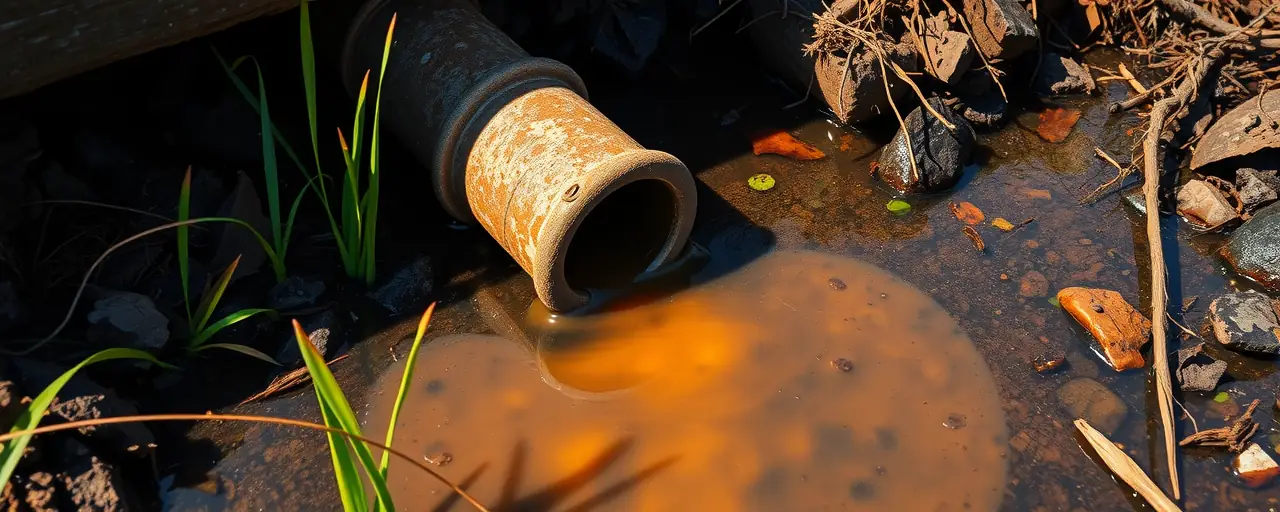A Health Secretary’s Dangerous Gamble
On Mother’s Day, Robert F. Kennedy Jr., the Health and Human Services Secretary, shared photos on X of himself and his grandchildren wading in Washington, D.C.’s Rock Creek. The images, framed as a wholesome family outing, hid a troubling truth. The National Park Service has prohibited swimming in the creek since the 1970s due to alarming levels of E. coli and other pathogens. Why would the nation’s top health official ignore warnings meant to keep people safe?
This act carries weight beyond a single swim. Kennedy’s role demands he protect Americans, yet his defiance dismisses the very public health systems he oversees. For those who value collective well-being, this moment stings. It suggests power can override responsibility, a message that clashes with the fight for a healthier, fairer society.
Rock Creek’s waters pose real dangers. In 2022, E. coli levels soared to 2,420 times the Environmental Protection Agency’s safe threshold. Annual sewage overflows, averaging 40 million gallons, flood the creek with contaminants. Swimming there risks severe illnesses, from gastrointestinal infections to long-term exposure to heavy metals. Kennedy’s choice to ignore these facts undermines trust in the institutions tasked with our safety.
Exposing a Crisis in Our Waterways
Kennedy’s reckless swim reveals a problem far larger than one official’s poor judgment. Urban waterways like Rock Creek suffer from decades of neglect and underinvestment. Outdated sewer systems, unable to handle storm surges, dump untreated waste into the creek. The Potomac River, connected to Rock Creek, has benefited from $2.3 billion in upgrades since 2017, yet E. coli spikes still make swimming unsafe after rain. How long will we tolerate this failure to deliver clean water?
Communities near polluted waterways, often low-income or marginalized, bear the brunt of this crisis. The Environmental Protection Agency reports that waterborne pathogens cause 7.5 million illnesses yearly, costing $3.3 billion in medical care. These harms hit hardest those with the least resources. Kennedy’s swim draws attention to this injustice, but his approach—ignoring warnings—does nothing to solve it. Real change requires funding modern infrastructure and prioritizing equitable access to safe water.
Some might call Kennedy’s act a bold embrace of nature, a protest against overregulation. This view misses the point. His privilege insulates him from the consequences others face. Disregarding health advisories doesn’t challenge broken systems; it puts vulnerable people at risk. True environmental advocacy pushes for tangible solutions, not reckless gestures.
Undermining Trust in Leadership
Kennedy’s supporters, particularly those skeptical of government rules, might see his swim as a stand against bureaucracy. Voices on platforms like Fox News have leaned into this, tying the incident to Kennedy’s critiques of public health policies. But this isn’t about personal freedom. It’s about the duty of leaders to model integrity. Federal ethics standards, built on laws like the Ethics in Government Act of 1978, require officials to uphold public trust. Kennedy’s actions fall short of that standard.
The National Park Service, with just 2,400 rangers for 84 million acres, depends on public cooperation to enforce rules. When a figure like Kennedy defies them, it weakens the system. If the Health Secretary can shrug off advisories, what stops others from doing the same? This erosion of trust threatens the safety of everyone who relies on clear, consistent regulations.
The fight for clean water has deep roots, from the Clean Water Act of 1972 to community-led river cleanups. Kennedy, who has championed environmental causes, should understand this legacy. His swim dismisses the sacrifices of those who built these protections and the communities still fighting for safe waterways. Leadership means setting an example, not exploiting loopholes.
Demanding a Cleaner, Fairer Future
Kennedy’s swim serves as a stark reminder of what’s at stake. Congress must act to fund urban water remediation, tackling the National Park Service’s $1.5 billion cleanup backlog and the Environmental Protection Agency’s overstretched mandates. We need leaders who fight for safe, accessible waterways, not those who treat pollution as a backdrop for social media.
As a society, we must demand accountability. Kennedy’s position as Health Secretary amplifies his actions. By ignoring health warnings, he weakens his office’s authority and the broader push for environmental justice. We need public servants who respect the rules they enforce and prioritize the well-being of all Americans, especially those most harmed by pollution.
The way forward is unmistakable. Invest in our waterways. Strengthen enforcement. Hold leaders to a higher standard. Only then can we guarantee that every person, from a child in a neglected neighborhood to a Cabinet secretary, can enjoy clean, safe water. Let’s commit to making that vision a reality.
